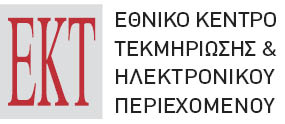What the Thesis proposes is a comparison between Kant’s critical philosophy and Wittgenstein’s critical practice of his later works. The term ‘critical’ should be understood twofold: First as the self -critique of the critical Kant of his early pre-critical project and, likewise, Wittgenstein’s critique of his own early thought; second as the transformation of the above self-critique to the critique of pure Reason (Kant) and to a critique of language (Wittgenstein). Critical philosophy exposes metaphysical illusion as a side effect of the way we think and speak. Therefore, it will prove to be not a correction of metaphysical thesis’, replacing one thesis with another (transcendental or grammatical), but it will seek, instead, to uncover the root and possibility of every metaphysical claim. Metaphysics will be exposed as a natural disposition of our human nature. But in order for Kant and Wittgenstein to acknowledge and expose metaphysics as an unavoidable illusion they must, first, expose their own early metaphysical claims as illusory. Pre-critical Kant proposes a paradoxical metaphysics granting that there exists a reality, although we are unable to know it. The thing in itself grounds knowledge but, most important, symbolizes reality itself. A similar paradoxical metaphysics is to be found in early Wittgenstein’s thought. He proposes that we understand what we cannot put into words. Logic does not reveal a theory of meaning, but rather the meaning of life itself, that is that everything does make sense, although we are unable to put this into words. Kant’s Copernican revolution proposes just this: We ought to examine our way of representing the object instead of examining what an object is. We need, in other words, to re-orientate our investigation from Being to Representation. Thus transcendental and grammatical investigation investigates the forms of representation we use, the way we look at things. The consequences are rather practical than theoretical. Critical philosophy understands that the human being maintains a plurality of autonomous perspectives that cannot be brought under one and sole principal, being god, nature or the general nature of the proposition. Kant recognizes Reason’s interest as an answer to the question ‘what is a human being’; the diversity of our interests defines the way through which we look at nature. Thus to be human is to be perspectival. A similar consequence can be drawn from Wittgenstein’s late work. Grammar is perspectival consisting in a multitude of autonomous forms of representation. Wittgenstein thus understands our need to orientate ourselves in and through language in order to avoid metaphysical illusion and to understand our selves echoing Reason’s self-knowledge as a perquisite of any critique of metaphysics. Thus, we can rephrase, as Stegmaier (2007) proposes, the Kantian question ‘what does it mean to orientate oneself in thought?’ as: ‘What does it mean to orientate oneself in language?’
Η διδακτορική διατριβή προτείνει μια παράλληλη ανάγνωση της φιλοσοφικής σκέψης του Kant και της φιλοσοφικής πρακτικής του Wittgenstein. Οδηγός σε αυτήν την ανάγνωση είναι η έννοια της κριτικής. Η κριτική εδώ έχει δυο σημασίες: Κατά πρώτον έχει τη σημασία της αυτοκριτικής του κριτικού Kant στη μεταφυσική της προ-κριτικής του σκέψης και του ύστερου Wittgenstein στη μεταφυσική της πρώιμης δικής του σκέψης. Η αυτοκριτική ωστόσο δεν θα θεμελιωθεί στην αναγνώριση σφαλμάτων, εσφαλμένων θέσεων, που θα πρέπει να αντικαταστήσουμε με άλλες, ορθές, θέσεις. Αντίθετα, η αυτοκριτική θα θεμελιωθεί στην αναγνώριση του αναπόφευκτου χαρακτήρα της μεταφυσικής πλάνης που συνεπάγεται τόσο ο Λόγος στον Kant, όσο και η γλώσσα, κυρίως, ο τρόπος που εμείς κατανοούμε τη γλώσσα στον Wittgenstein. Η κριτική συνεπώς, στην κατεξοχήν καντιανή της σημασία, μεταστοιχειώνεται σε κριτική του Λόγου στον κριτικό Kant και κριτική της γλώσσας στον ύστερο Wittgenstein. Στη βάση της παραπάνω μεταστοιχείωσης της αυτοκριτικής στην κριτική βρίσκεται ο παράδοξος χαρακτήρας των μεταφυσικών μας εννοιών (μετέπειτα εποπτείας και κατηγοριών) στον Kant και της λογικής στον Wittgenstein. Αμφότεροι, Kant και Wittgenstein, αδυνατούν να καθορίσουν σε τι αντιστοιχούν οι έννοιες και η λογική. Αυτή η δυσκολία παράγει μια παράδοξη μεταφυσική, η οποία για τον προ-κριτικό Kant συμβολίζει τον θεό, ενώ για τον πρώιμο Wittgenstein αποκαλύπτει το νόημα του κόσμου και της ζωής. Ο παράδοξος χαρακτήρας αυτής της μεταφυσικής συνίσταται στο εξής: Για τον προ-κριτικό Kant αποδεχόμαστε ως πραγματικότητα (το πράγμα καθαυτό) αυτό που δεν μπορούμε να γνωρίσουμε∙ για τον πρώιμο Wittgenstein κατανοούμε αυτό που δεν είμαστε σε θέση να διατυπώσουμε στη γλώσσα. Με αιχμή την κοπερνίκεια στροφή του Kant και τη μετατόπιση του ενδιαφέροντός μας από το Είναι στον τρόπο που παριστάνουμε και μιλούμε για τα πράγματα, ο κριτικός Kant και ο ύστερος Wittgenstein θα αναγνωρίσουν ότι οι μεταφυσικές μας έννοιες (Kant) και η λογική (Wittgenstein) δεν χρειάζεται να αντιστοιχούν πουθενά, άρα δεν χρειάζεται να συμβολίζουν κάτι. Η έρευνά μας μεταστοιχειώνεται από οντολογική σε υπερβατολογική (Kant) και γραμματική (Wittgenstein), εφόσον ζητούμε να γνωρίσουμε και να κατανοήσουμε τον τρόπο που παριστάνουμε τα πράγματα - όχι τα ίδια τα πράγματα. Αυτός ο τρόπος όμως δεν συνεπάγεται μια θεωρία του νοήματος για τον ύστερο Wittgenstein, κατ’ αναλογία ίσως με τη θεωρία της γνώσης στον Kant, αλλά αντίθετα θα θέσει επιτακτικά το πρόβλημα της κατανόησης στον Wittgenstein κατ’ αναλογία με το πρόβλημα της αυτογνωσίας του Λόγου στον Kant. Το διακύβευμα δεν είναι θεωρητικό αλλά ο προσανατολισμός μας μέσα στη γλώσσα και στο νοείν∙ το διακύβευμα είναι η αναγνώριση του χιμαιρικού χαρακτήρα της θεωρίας και η αποδοχή μας πολλαπλότητας αυτόνομων προοπτικών στη θέση της μεταφυσικής ενότητας. Το έσχατο συνεπώς διακύβευμα της κριτικής θα αποδειχτεί μάλλον πρακτικό εφόσον η κριτική μας ζητά να κατανοήσουμε τον άνθρωπο ως μια πολλαπλότητα είτε διαφερόντων (Λόγος) είτε παιχνιδιών και μέσων παράστασης (γλώσσα) ως προφύλαξη απέναντι στον μεταφυσικό δογματισμό που επιζητά την αναγωγή όλων των επιμέρους όρων και προοπτικών μας σε μια και μόνον αρχή.
 National Documentation Centre (EKT)
National Documentation Centre (EKT)



